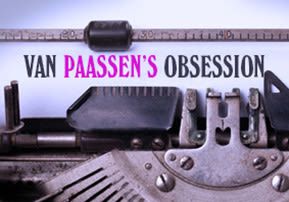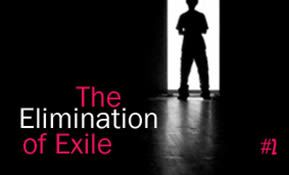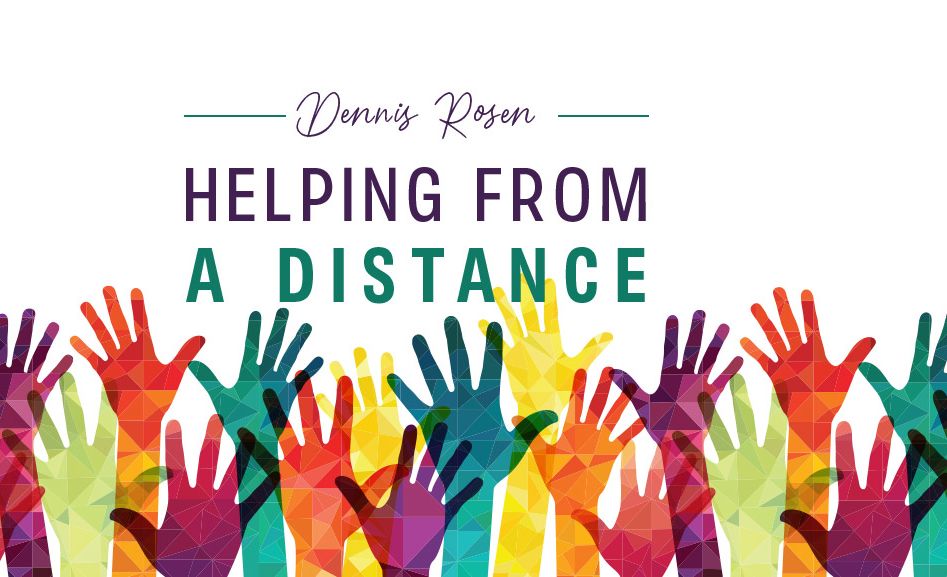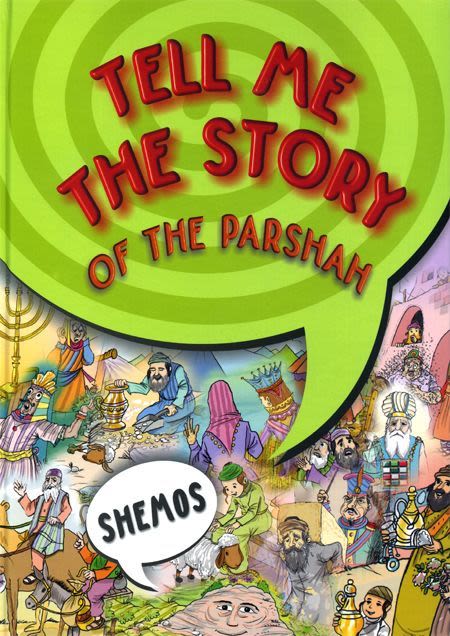
Van Paassen’s Obsession
Correspondent Pierre Van Paasen was horrified by the frightful killing of Jews in Europe and the lack of interest in high places, both in the UK and in the USA...

Just two years before Hitler became chancellor of Germany, Pierre Van Paassen looked directly into the face of the soon-to-be genocidal dictator and dared to defend the Jews.
Hitler exploded.
With savage hatred for Jews in his eyes, Hitler screamed at Van Paassen: “You, who are an Aryan, a Nordic, a Teuton from the shores of the German Ocean, why do you not see the menace of the Jew to our Western civilization?”
But Van Paassen never saw that menace. Instead, he only saw the deadly threat of virulent antisemitism to Europe’s Jews during the period between the two world wars. And with an obsessive quest for morality and the truth, he was unafraid to defend the Jews to such notorious European antisemitic rulers as Hitler,  Mussolini, Poland’s Jozef Beck and Admiral Horthy of Hungary.
Mussolini, Poland’s Jozef Beck and Admiral Horthy of Hungary.
Because of his sympathy of the Jews during a time when it was unpopular to sympathize with Jews, Van Paassen was sometimes dismissed as a “hireling of the Jews.” Josef Goebbels, Hitler’s Propaganda Minister, even published a notice saying, “The correspondent Pierre van Paassen, a Dutch Jew of Lithuanian extraction, whose real name is Pinchas Paskowitz, is an ex-rabbi, who engaged in atrocity-mongering while on Reich territory.”
All Nazi lies.
Pierre Van Paassen was a Protestant foreign correspondent originally from Holland and a daily columnist for more than 20 American newspapers, including the Atlanta Constitution and the Boston Globe.
Largely forgotten today, Pierre Van Paassen tried saving Jewish lives by both writing and speaking about the plight of the European Jewish masses. He was horrified by, in his words, “the frightful and uninterrupted killing of Jews in Europe” and frustrated by “the lack of interest in high places, both in Britain and in America in providing the terrorized remnants of European Jewry with a means of escape of even with a ray of hope for survival.”
He said wherever he went throughout Europe, whether it was in public gatherings or in meetings with world leaders, his one word on the “Jewish question” was that “the Jews should be evacuated from Europe at no matter what cost. They should be directed towards Palestine in their hundreds of thousands, in their millions, if possible….But save them, save their lives.”
In his 1943 book The Forgotten Ally, Pierre Van Paassen traced his intense interest in the in-gathering of the Jewish People to one evening around 1911 when he was fifteen or sixteen. He had attended church in his Dutch home town when the minister offered prayers “for the return of the People of Israel to the Holy Land.” After the service, the minister stopped at Van Paassen’s home and spoke these words about the Jews that made a life-long impact on Van Paassen:
“Some incident, insignificant in itself may very well bring [the dread possibility of hatred towards the Jews awakening some day in Europe] into the open. Not long ago we saw it come snarling to the surface with the Dreyfus affair in a country as civilized as France. Who knows when and where it will break out again? And so long as that hatred persists in our hearts, the Jews are not safe anywhere, not in Russia, not in Germany, not in Holland, or in that far-off America to which so many of them are fleeing these days from Russia. In moments of historical crisis they are first thought of, almost instinctively, as the convenient victim on whom to unload popular frustration and wrath or fury at governmental incompetence, as we see it happening today in the empire of the Czar.”
These words stayed with Van Paasen after he became a foreign correspondent in Europe, helping him side with the Jews rather than with their anti-Semitic host countries. He lamented that the Jews in pre-World War Two Europe “were surrounded by strong and ever stronger-growing nationalist parties with xenophobic or overtly antisemitic tendencies. Everywhere the Jew was looked upon as the stranger, the intruder, the alien, who by his mere presence accentuated the struggle for existence.”
Van Paassen also observed that the Jew before World War Two didn’t “look upon himself as a stranger in Hungary or Romania any more than he looks upon himself as a stranger in America. He had lived in those countries for ages. He had taken root. He was established. He had his civic rights….He was a citizen. Nevertheless his rights were progressively delimited and curtailed.”
Van Paassen met with Jewish leaders in pre-Holocaust European countries. He saw that rather than encouraging emigration to the Land of Israel, these leaders “insisted that the Jews must nevertheless stand firm, not run away, but rather ally themselves with all forward-looking elements in the nations among whom their lot had cast them, and fight it out.”
“But,” Van Paassen continued, “the political allies they acquired that way always deserted the Jew in the moment of danger or whenever opportunism dictated.”
The Holocaust proved that all too well.
* * *
The pre-World War Two attitudes and antisemitism Pierre Van Paassen described nearly eight decades ago look strikingly similar in our own time. And Van Paassen’s warnings, as well those of the minister who inspired him in his youth, are just as relevant today.
As in the last century, Jews today are still often viewed as strangers despite living in host countries for centuries. Far-right nationalist parties have once again gained popularity in France, Hungary, Greece and Ukraine. Jews are still blamed for governmental incompetence and economic hardship. The anti-Israel boycotts, the calls to outlaw circumcision and kosher slaughtering and the increase in deadly antisemitic violence in both Europe and the United States all echo the antisemitism of Van Paasen’s time before World War Two.
And just as in Pierre Van Paassen’s time, many Jewish leaders in Europe and the U.S. today still insist that we Jews must stand firm with our political allies rather than making Aliyah to Eretz Yisrael, despite the fact there are now more Jews living in Israel than anywhere else on Earth.
Van Paassen’s one plea to save the Jews of Europe in the first part of the 20th century was to have them return to Israel. This was his obsession. And today, this obsession is just as needed, especially for the Jews of France and Ukraine.
And even for American Jews.
Van Paassen lived in historic times. So do we. And if history has taught us anything, it’s that Israel is the only home we Jews have, that no country or government can be relied on to help us and that the only One we can really rely on is Hashem — especially during such turbulent times as ours.










7/23/2014
A big thank you! Thank you for this historically interesting blogpost. As a Dutch Gentile who just started the conversion process this is excactly what I feel. I will definately look more into this story and the man Pierre van Paassen, because I could definately need some insperation on how to counterreact the current movement in Europe.
7/23/2014
Thank you for this historically interesting blogpost. As a Dutch Gentile who just started the conversion process this is excactly what I feel. I will definately look more into this story and the man Pierre van Paassen, because I could definately need some insperation on how to counterreact the current movement in Europe.